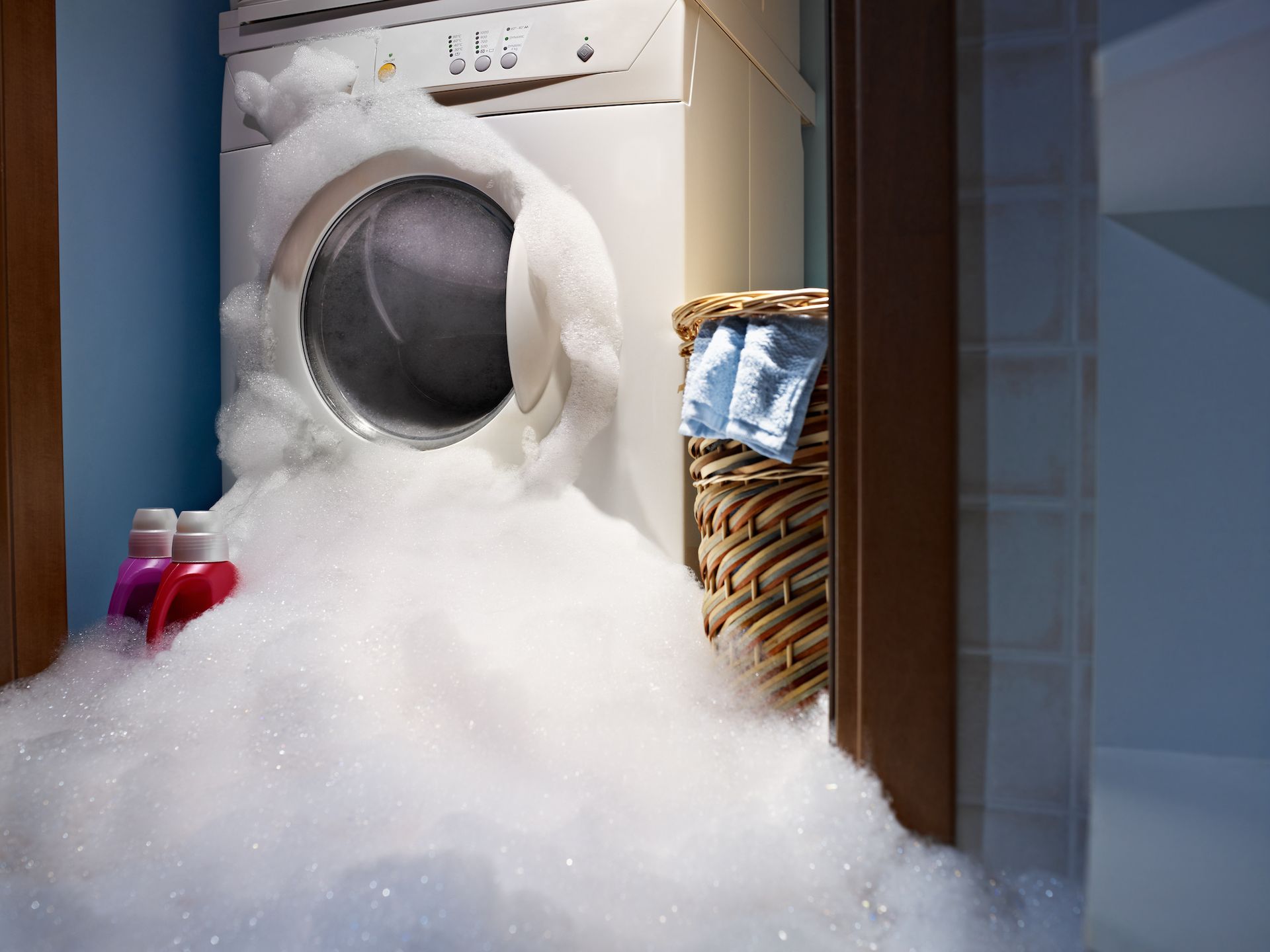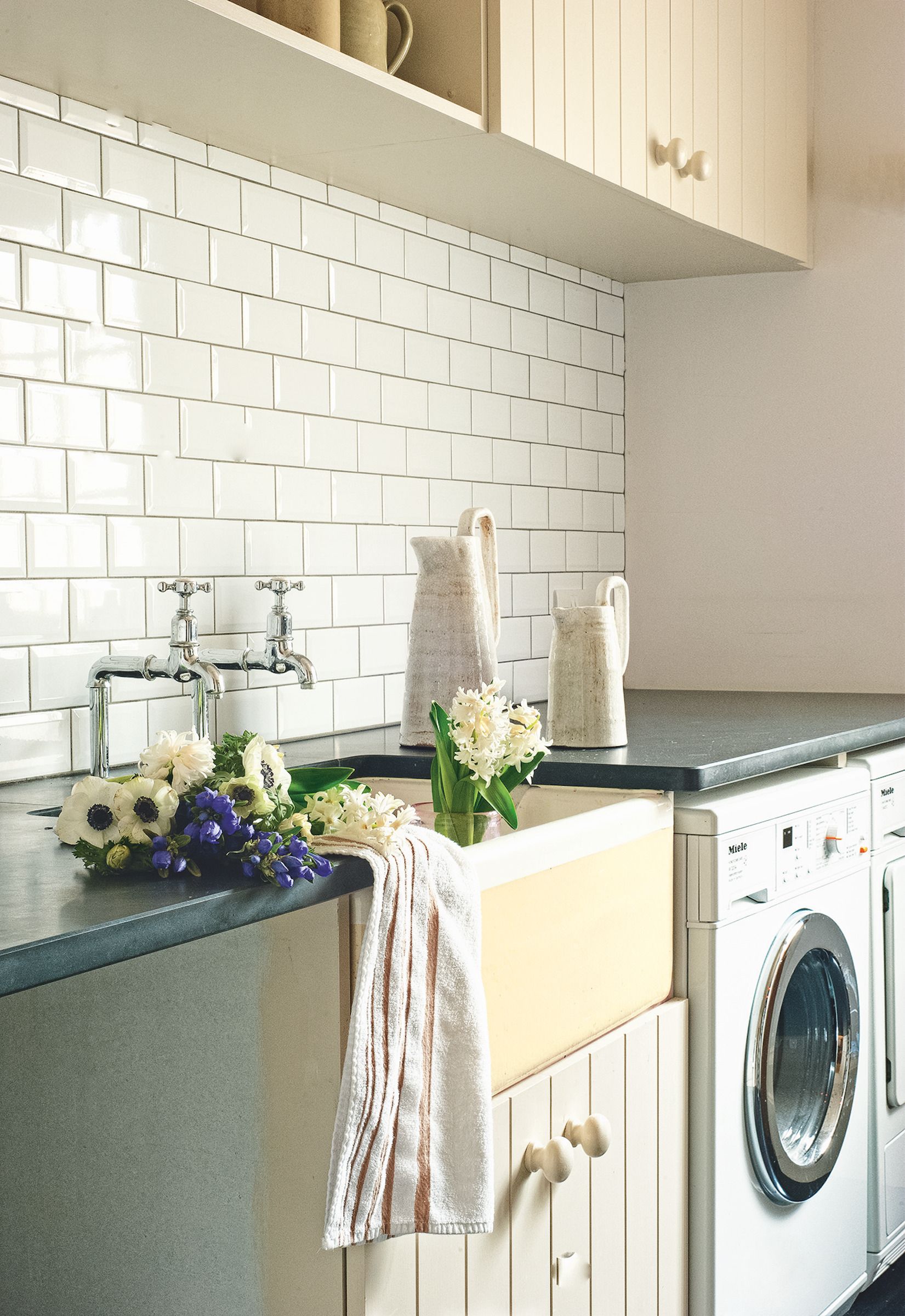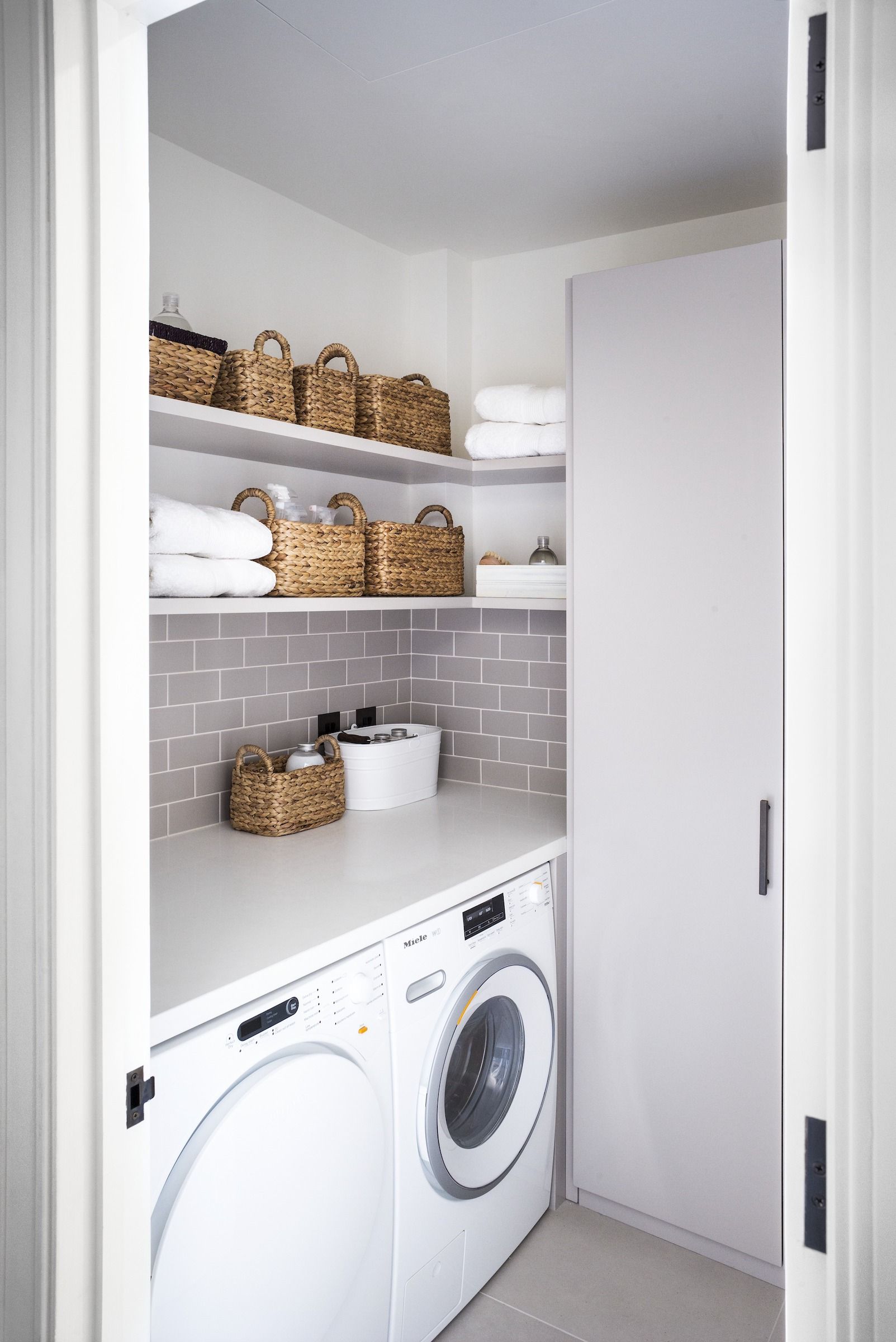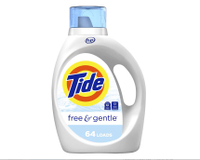Can I use dish soap to clean clothes?
Find out why the experts say it's an emphatic 'no' to washing your clothes with dish soap
- (opens in new tab)
- (opens in new tab)
- (opens in new tab)
- Sign up to our newsletter Newsletter


There are lots of things that dish soap is great for washing. But for cleaning clothes? Please, step away from your washer and take the squeegee bottle with you.
Of all the many queries around laundry best practice that we receive – from washing towels with clothes to washing clothes in cold water – using dish soap is one of the most popular.
But while a cheap and sudsy alternative to washing powder may seem appealing, it has the potential to damage not just your clothes but your washing machine, too. With expensive consequences.
3 reasons experts never use dish soap to clean clothes
We asked cleaning and laundry expert, Sara San Angelo, aka The Cleaning Lady (opens in new tab) for her opinion on using dish soap to clean clothes.
'Dish soap directly in a washing machine is a recipe for disaster,' she says. 'Not only will the dish soap create uncontrollable suds that may spill out of your washer, but it can also damage the internal hoses and pumps and break your washing machine.'
So, that's a no then – even in an emergency?
'If Taco Tuesday has your favorite shirt a greasy polka-dotted mess and you have a meeting in 10, then by all means, grab the dish soap,' Sara says. 'Dish soap can be used in a pinch to handwash clothes if you do not have laundry detergent. But use it very sparingly.'
So, here's the dish on why cleaning clothes with dish soap is not the smartest laundry room idea.
1. Using dish soap can damage your washer

'I would not recommend using dish soap in a washing machine,' says Viktor Holas, DIY expert and founder of home improvement website Simply Swider (opens in new tab). 'We work with a lot of companies that fix washing machines, and putting dish soap in them is one of the common reasons people turn to them for repair.'
One of the biggest problems is bubbles. Dish soap is designed to be used in the sink, where that froth of suds feels good on our skin and helps to feel the product is working hard to get our dishes clean.
'Dish soap creates a lot of suds which can cause the machine to overflow and potentially damage various parts of the appliance,' Viktor explains. 'The suds can also cause the machine to become unbalanced, leading to damage to the drum and other internal components.'
2. Dish soap can harm clothes when you wash them

Compare a griddle pan or stainless steel casserole with a silk blouse or your favorite wool sweater and you can see why grease-busting dish soap is suitable for the dishes but a delicate detergent should be your pick for laundry.
'Dish soap is designed to clean dishes and may contain harsh chemicals that can strip clothes of their color and natural oils, causing them to become stiff and damaged,' says Viktor Holas. 'These harsh chemicals can also cause buildup in the washing machine, potentially damaging the machine's internal components like drum, hoses, and seals.'
If you're worried that your clothes aren't coming out of the washer as clean as you would like, there are a couple of options that might help. The first is to clean your washing machine, which can help to deliver brighter and cleaner laundry. The second is to strip your laundry – essentially, a long soak in a solution of powdered washing detergent, Borax, and washing soda, which can remove built-up residue and make your sheets, towels, and other laundry, look cleaner, softer, and brighter.
Widely acknowledged as the best laundry detergent is Tide, available on Amazon (opens in new tab) and in stores, which has nearly 20,000 5-star reviews on Amazon.
Tide Free & Gentle Laundry Detergent Liquid Soap, 64 Loads, $12.97, Amazon (opens in new tab)
Gentle on skin, free of dyes and perfumes and hypoallergenic.
3. Dish soap won't clean your clothes effectively

Just because dish soap can deal with grease and cooking residues, doesn't mean it can remove the dirt and odors that affect your clothes.
'Dish soap was not formulated to clean clothes like laundry detergent is, so while it may remove some dirt and grease stains, it will not clean your clothes as effectively,' confirms cleaning expert, Sara San Angelo. 'It will also leave soap residue on fabrics that is hard to get out.'
'This residue can cause discoloration or damage to the fabric,' continues Viktor Holas. 'It can also cause the clothes to retain a soapy smell, which can be difficult to remove. From my expert experience, it is better to use laundry detergent specifically formulated for use in washing machines to avoid these issues.'
For really fresh-smelling laundry, you could spritz your sheets and clothing items with a homemade linen spray, which will also help to make your home smell nice, too.
Can I use dish soap to hand-wash clothes?

The only exception to the expert ban on washing clothes with dish soap is when it comes to hand laundry.
'Dish soap is actually an effective product for spot treatment of oil and grease stains, but use it very sparingly,' advises Sara San Angelo.
'Always pre-treat directly on the stain and never use more than a few drops. Massage into the stain then wash, but never pour soap directly into a washing machine.'
We've found that dish soap can be an effective way to remove ink from leather and can also help to take out a red wine stain from carpet, but the trick is to use just a drop, let it get to work breaking down the residue, then rinse the dish soap away. The same is true for using dish soap to remove stains from clothes.
Andrea has been immersed in the world of homes, interiors and lifestyle since her first job in journalism, on Ideal Home. She went from women's magazine Options to Frank. From there it was on to the launch of Red magazine, where she stayed for 10 years and became Assistant Editor. She then shifted into freelancing, and spent 14 years writing for everyone from The Telegraph to The Sunday Times, Livingetc, Stylist and Woman & Home. She was then offered the job as Editor on Country Homes & Interiors, and now combines that role with writing for sister title homesandgardens.com.
-
-
 Robert Pattinson just bought a Spanish Colonial-style home – with an interior designer past
Robert Pattinson just bought a Spanish Colonial-style home – with an interior designer past'The Batman's' Robert Pattinson and Suki Waterhouse purchased the Jeff Lewis-designed Hollywood Hills estate for $5.3 million
By Megan Slack • Published
-
 7 expert-approved methods to remove candle wax from carpet
7 expert-approved methods to remove candle wax from carpetCleaning professionals share their tips on how to remove candle wax from carpet
By Millie Hurst • Published


